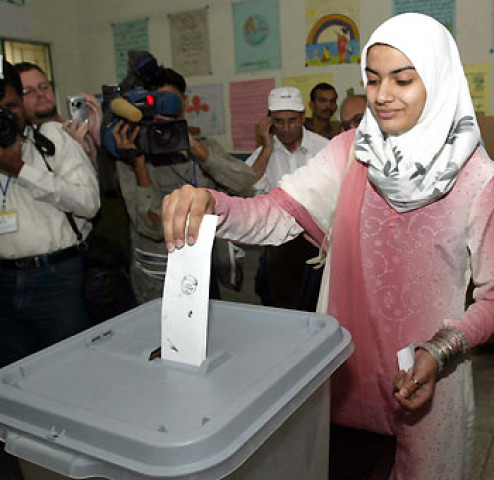Speak in favour of sustaining democracy in Pakistan and the first argument you are likely to hear in response is:
“Look at the literacy rate in our country, these people don’t know what is good for them.”
This is a grossly inaccurate argument and here’s why:
Public franchise or elections need no explanation. This is the only facet of democracy that is so popular in Pakistan that no sooner have we had one round of elections, most TV talk show hosts and many members of the public can hardly wait for the next one.
Arguably, the real process of democracy starts after this franchise.
At the risk of sounding awe-inspired by the west, the founding fathers of the US laid great stress on ensuring people’s rights in property, arguing that if the writ of law was not established and the government did not secure the rights of people over their possessions, people would simply not trust the government. This would make any form of government redundant and ineffective.
Pakistan has witnessed its own version of a drive for establishing the ‘rule of law’. During the long-drawn lawyers’ movement, a prominent leader of the black coats remarked that the economy would stabilise and people’s financial woes would be addressed when the judges were restored.
Well, they have been restored for a while now, yet the common man is no better off.
This is simply because the country’s judicial system is not providing justice.
For millions of poor and disenfranchised people’s education, healthcare and social security are still alien concepts.
Many families rely on the earnings of their children to survive. For them, sending these bread winners to school makes little economic sense in the immediate term.
The long-term benefits are also fleeting because the legal system does not protect their rights in an adequate manner.
A law professor whose class I attended remarked, “Only go to court in Pakistan if you do not want to resolve a matter but to inflict pain on the other party.”
If that remains the image of our legal system, neither democracy nor any other system of governance can work.
Democracy: What’s school got to do with it?
No sooner have we had one round of elections, members of the public can hardly wait for the next one.



COMMENTS
Comments are moderated and generally will be posted if they are on-topic and not abusive.
For more information, please see our Comments FAQ